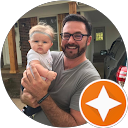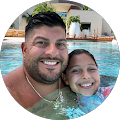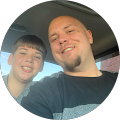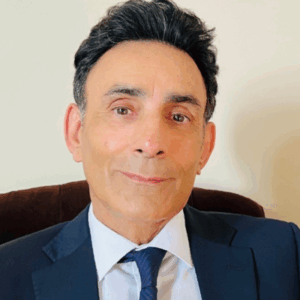

When intrusive thoughts loop nonstop and rituals steal hours from your day, it can feel like life is on pause. Our OCD treatment in Louisville, KY, offers a flexible OCD treatment program that targets both obsessions and compulsions with proven strategies.
Choose Partial Hospitalization (PHP) for all-day structure, Intensive Outpatient (IOP) for a part-time schedule, or weekly Outpatient sessions each led by clinicians certified in Exposure & Response Prevention (ERP).
If symptoms spike, we coordinate rapid transfers to inpatient stabilization and welcome you back for step-down care. One call to 502-586-2433 initiates a personalized plan to help you break the cycle and move forward.

Obsessive-compulsive disorder (OCD) is a mental health disorder that causes people to have unwanted and repeated thoughts, feelings, ideas, sensations (obsessions), or behaviors that make them feel driven to do something over and over again (compulsions). In Louisville, OCD treatment is available to treat compulsive behaviors and other OCD symptoms.
People who have OCD may feel they need to perform certain rituals or routines over and over again to prevent harm to themselves or others. They may also feel they need to check things repeatedly. For example, they may need to check the stove 10 times before leaving the house because they fear they left it on.
These thoughts, feelings, ideas, sensations, and behaviors are called obsessions. People with OCD get them in their minds and can not get them out of their minds, no matter how hard they try. They become so strong people with OCD know these thoughts are not real but still can not stop having them.
The compulsions are behaviors performed in response to an obsession to relieve stress caused by the obsession. Compulsions are often done as a way to prevent bad things from happening. For example, when someone is obsessed with being dirty or contaminated by germs, they may wash their hands repeatedly or several times.
This can happen even to the point of injury. People with OCD may spend hours daily performing compulsions such as cleaning, washing, counting, tapping, putting things in order, or arranging things until it “feels right.” to them.
Obsessive Compulsive Disorder (OCD) is marked by distressing thoughts (obsessions) and repetitive actions (compulsions) performed to reduce anxiety. Effective OCD Treatment combines medication, typically high-dose SSRIs or, in some cases, atypical antipsychotics, with gold-standard Exposure & Response Prevention (ERP).
At our center, ERP sessions are delivered in an outpatient format, allowing you to practice resisting rituals in real-world settings and process wins or setbacks the following day. Therapy rooms include “trigger stations” that simulate common fears, contamination, checking, and symmetry while clinicians coach you through the urge to ritualize.
Weekly medication reviews ensure side effects are minimal and serotonin levels remain optimal. Together, these elements create a dynamic plan that chips away at OCD’s grip while letting you stay rooted in daily life, exactly what OCD treatment in Louisville, KY, is designed to do.
An accredited OCD treatment center offers a range of support beyond a typical therapy office. You’ll meet regularly with a psychiatrist for dose optimization, nurses who track sleep, blood pressure, and weight, and ERP-certified therapists who guide individualized OCD Therapy sessions.
Digital symptom-tracking tools flag spikes between visits, enabling immediate adjustments to the plan. Family education groups teach loved ones to stop “accommodating” rituals, an evidence-based step that speeds progress.
Care coordinators handle insurance authorizations and schedule follow-ups so administrative stress never fuels obsessions.
By integrating medical oversight, specialized OCD therapy, and practical life coaching, the center builds a comprehensive roadmap from first exposure exercise to long-term maintenance, giving you the confidence to reclaim routines once ruled by compulsions.
Obsessive-compulsive disorder (OCD) is an anxiety disorder characterized by obsessive thoughts and compulsive actions or rituals. The symptoms can be mild or severe and can cause significant impairment in a person’s life.
According to the International OCD Foundation, the most common signs of obsessions and compulsions include:
The above-mentioned symptoms can make leading a fulfilling and healthy life challenging. In extreme cases of OCD, people struggle to fulfill their daily responsibilities because they cannot move on from their obsessive thoughts or compulsive behaviors.
Our Louisville OCD clinic helps clients find healthy coping mechanisms to manage obsessions and compulsions.

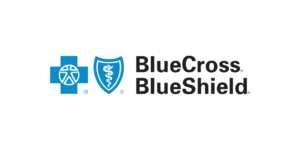
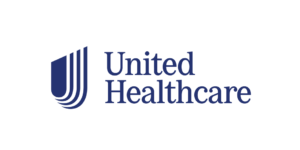

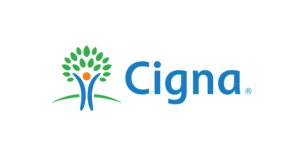



OCD varies from person to person, and many psychiatrists believe it can be categorized into five subtypes of obsessive-compulsive behavior. Individuals often experience symptoms from several of the categories, which can change over time. Our OCD treatment in Louisville involves a personalized approach that addresses the specific symptoms and challenges associated with each subtype.
Organization is one of the most common types when individuals think of OCD. This boils down to an obsession with needing everything to be in its right place or symmetrical. This could look like wanting all labels facing in the same direction or keeping their room clean at all times.
If an individual cannot accomplish this, it might leave them with feelings of distress. They can believe that harm can happen to themselves or loved ones due to the lack of organization.
This type has two parts. The first is the thought that the people around them can spread illnesses through touch or proximity. The second is that things, thoughts, or even words can “contaminate” a person. A person might see an individual with this type washing their hands frequently or cleaning objects more.
These activities prevent the spread of this perceived contamination. Due to this fear, individuals might become isolated and avoid certain places, things, and people.
Individuals who experience intrusive thoughts are having distressing ideas enter their minds at seemingly random times. These thoughts can range from causing pain to a loved one or a stranger.
Some believe thinking about something for too long will increase the likelihood of it happening. To help them silence their thoughts, they might see or hear them do a certain action or say something out loud.
This type is similar to intrusive thoughts but these thoughts often feel interesting or even indulgent. Rumination can cause an individual to spend a lot of time thinking, worrying, and overanalyzing specific thoughts or actions.
This can still be distressing to an individual since they will repeat this thought or try to solve a problem. This can include worrying about future events, replaying past scenarios, or trying to predict how an event will play out.
Checking is another common type of OCD. This is an obsession in which an individual worries about causing harm due to being careless. Checking might look like making sure the door is locked or that the burners on their stoves are turned off. They might do this multiple times to help them feel more at ease.
OCD (Obsessive-Compulsive Disorder) can worsen due to various factors. For example, one might ask, can trauma cause OCD or make it get worse? Another often-asked question is, can OCD be inherited from a family member? Here are some common factors that may cause OCD symptoms to intensify.
Obsessive-Compulsive Disorder and depression are often interconnected, with individuals experiencing symptoms of both conditions simultaneously. OCD is characterized by intrusive thoughts (obsessions) and repetitive behaviors or mental acts (compulsions), while depression involves persistent feelings of sadness, hopelessness, and a loss of interest or pleasure in activities.
The relationship between OCD and depression can be complex and bidirectional. Some individuals with OCD may experience depressive symptoms as a result of the distress and impairment caused by their obsessions and compulsions. Conversely, individuals with depression may develop obsessive thoughts or engage in compulsive behaviors as a way to cope with their feelings of sadness and despair.
At our OCD treatment center, dual diagnosis treatment often requires a comprehensive approach that addresses the unique symptoms and challenges of each condition. This may include a combination of therapy, medication, and lifestyle changes tailored to the individual’s specific needs. Cognitive-behavioral therapy (CBT), particularly Exposure and Response Prevention (ERP) for OCD and cognitive restructuring for depression, is often effective in treating both conditions. Medications such as selective serotonin reuptake inhibitors (SSRIs) may also be prescribed to alleviate symptoms.
It’s important for individuals experiencing symptoms of both OCD and depression to seek help from a mental health professional who can provide an accurate diagnosis and develop a personalized treatment plan. With appropriate OCD and depression treatment, individuals with both OCD and depression can learn to manage their symptoms and improve their overall quality of life.
| Core Approach | Role in Obsessive Compulsive Disorder (OCD) Therapy |
|---|---|
| Exposure & Response Prevention (ERP) | Gold-standard OCD Therapy that gradually exposes you to triggers while blocking rituals, retraining the brain’s alarm system. |
| Acceptance & Commitment Therapy (ACT) | Teaches you to allow anxious thoughts without acting on them, then pivot toward value-based action. |
| Mindfulness & Breathwork | Lowers autonomic arousal, so obsessions lose their urgency. |
| Medication Management | On-site psychiatrist adjusts high-dose SSRIs or augments with atypical antipsychotics when needed. |
| Family Therapy | Coaches loved ones to stop “accommodating” compulsions and set supportive boundaries. |
| Addiction-Focused Services (MAT, Relapse-Prevention) | For co-occurring substance misuse, it integrates craving control so alcohol or drugs don’t replace rituals. |
These tools are woven into every PHP, IOP, and OP track, letting your OCD therapy evolve as symptoms improve while ensuring exposure practice, medication, and family support move in lockstep.
Yes. When compulsions trigger self-harm risk, nonstop rituals cause dehydration or infection, or intrusive thoughts edge toward psychosis, our clinical team arranges rapid transfer to a partner hospital for round-the-clock inpatient OCD stabilization. We handle transportation records in advance and serve as your primary contact point for hospital staff to deliver intensive care, including IV medication, nutritional support as needed, and 24/7 monitoring.
Average stays last 5–10 days, long enough for patients to regain sleep, hydration, and medication adherence. Discharge planning happens from day one.
Once the acute danger has passed, you transition back into ERP labs, medication reviews, and family coaching within our outpatient program, creating a seamless bridge from crisis to long-term resilience.
Expect a clear routine. The PHP OCD treatment program meets five days a week for 25–30 hours total. Mornings open with mindfulness or light cardio to dial down baseline anxiety, followed by ERP “lab” blocks where you face triggers, door handles, stovetop knobs, and intrusive images under therapist guidance.
Twice-weekly individual sessions focus on cognitive restructuring and include home exposures.
After lunch, medication check-ins ensure SSRIs stay therapeutic, and afternoon skills groups cover ACT, emotion regulation, and relapse-prevention for any co-occurring substance use. Evening family workshops run once a week.
Stepping into IOP reduces the load to 9–15 hours across three to five days; you’ll still attend at least one ERP lab, one individual session, and a peer support circle each week, providing plenty of structure while being flexible enough for work or school.
Most intensive OCD treatment programs run about six weeks in PHP, a span long enough to complete 15–20 supervised ERP sessions and stabilize meds. Clients then shift into IOP for eight to twelve weeks, where exposures move into real-world settings (grocery stores, highways, public restrooms) while therapist check-ins taper.
After IOP, alumni groups meet monthly for booster ERP practice and accountability, and your psychiatrist oversees long-term medication maintenance every six to eight weeks. Some people opt for periodic “tune-up” sessions, light treatment programs for OCD lasting a week or two whenever life stressors spike.
Duration is always adjusted to match symptom severity, response speed, and personal goals, ensuring care is both thorough and personalized.
Finances shouldn’t fuel obsessions. Our admissions team offers free, confidential insurance verification for OCD Treatment in Louisville, KY, typically within an hour. We accept Anthem Blue Cross Blue Shield, Aetna, Cigna, Humana, UnitedHealthcare, and most PPO plans. We’ll outline deductibles and copays for you to start.
If coverage is limited, ask about sliding-scale fees or zero-interest payment plans so cost never derails recovery.
Speed matters when rituals rule your day. One phone call triggers a same-day clinical assessment, and a virtual intake packet enables you to enroll from the comfort of your own home.
If your symptoms require 24/7 monitoring, we’ll arrange transport to a partner hospital for immediate care; otherwise, Obsessive Compulsive Disorder (OCD) Therapy in PHP or IOP can begin as early as tomorrow, complete with your first ERP session and medication review on the calendar.
We focus on measurable milestones rather than individual anecdotes. Within the first few weeks of care, most clients can delay or shorten compulsions during supervised ERP sessions, an early sign that the brain is relearning how to handle anxiety without rituals.
As treatment continues, tracking apps and therapist check-ins show a steady drop in daily obsession time and a rise in “compulsion-free” intervals.
By program discharge, many clients report sleeping through the night, returning to work or school without repeated checking, and spending far less mental energy on intrusive thoughts.
Alumni surveys taken six months later reveal that the majority still practice ERP techniques, attend periodic booster sessions, and rate their symptom control as “good” or “excellent.” These data-driven outcomes illustrate how consistent OCD therapy, medication management, and family education translate into lasting relief.
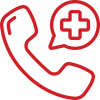
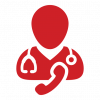
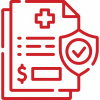
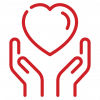

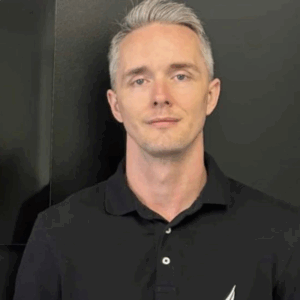
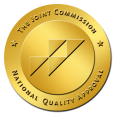
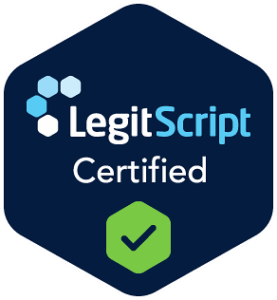
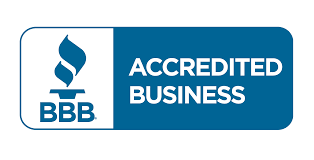


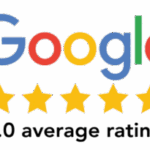

American Psychological Association. (2024). Obsessive compulsive disorder. https://www.apa.org/topics/ocd Anxiety Institute+15American Psychological Association+15Psychiatry Online+15
American Psychiatric Association. (2017). Practice guideline for the treatment of patients with obsessive-compulsive disorder. In APA clinical practice guidelines. MedscapePsychiatry Online
Anxiety and Depression Association of America. (n.d.). Practice guidelines for treating OCD in children and adults recommend first-line treatments: CBT with ERP, pharmacotherapy with SRIs, or their combination. ADAA
Drummond, L. M. (2021). Cognitive behavioural therapy with exposure and response prevention in the treatment of obsessive-compulsive disorder: A systematic review and meta-analysis of randomized controlled trials. Comprehensive Psychiatry. https://doi.org/10.1016/J.COMPPSYCH.2021.152223 Academia
Reid et al. (2021). Cognitive behavioural therapy with exposure and response prevention in the treatment of OCD: Updated meta-analysis on ERP protocols versus control. UCL DiscoveryScienceDirect
Massachusetts General Hospital (2020). Cognitive behavioral therapy for OCD: CBT + ERP, SRIs, and mindfulness in clinical application. MGH CME
Yildirim, K. (2022, October 25). What Is Exposure and Response Prevention? Verywell Health. https://www.verywellhealth.com/exposure-and-response-prevention-5270826 Verywell Health
National Institute of Mental Health. (n.d.). Obsessive-compulsive disorder (OCD): Treatment options and research. U.S. Department of Health and Human Services, National Institutes of Health. https://www.nimh.nih.gov/health/topics/obsessive-compulsive-disorder-ocd National Institute of Mental Health









Hear directly from those who have walked the path to recovery. Our patients’ stories highlight the compassionate care, effective programs, and life-changing support they’ve experienced. Let their journeys inspire you as you take your first steps toward healing.
Get Family Support Now
We understand addiction affects the whole family. Our comprehensive family program helps rebuild trust and restore relationships.
Weekly Family Therapy Sessions
Educational Workshops
Support Groups
Communication Skills Training


Louisville Addiction Center is helping people in Kentucky overcome addiction and mental health challenges.




